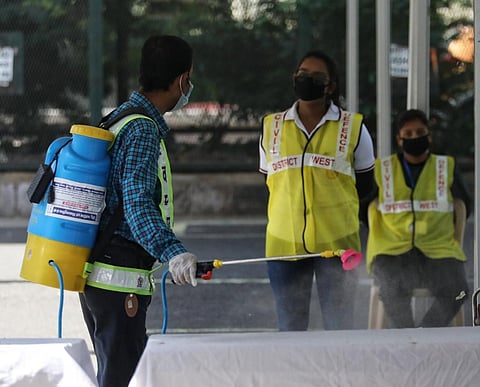

The latest ‘pulse survey’ — the second since the novel coronavirus disease (COVID-19) was declared a pandemic — by the World Health Organization (WHO) shows that about 90 per cent of the countries are still reporting disruptions in essential health services. This is due to preoccupation with the emergency response to the pandemic.
WHO conducts such surveys in countries / territories to gauge the impact of the COVID-19 pandemic responses on essential health services.
The first such survey was conducted in summers 2020 and the latest one in October 2020-February 2021. The survey covered 216 countries and territories and the assessed disruption in 63 core health services across delivery platforms and health areas.
Going by the findings of the latest pulse survey, there is not much progress in ensuring the essential health services since the last survey period:
Countries still have to make important decisions when responding to COVID-19 that may negatively affect access to care for other health issues. Redeployment of staff to provide COVID-19 relief and temporary closures of health facilities and services continue.
The overwhelming pandemic responses have resulted in millions of people missing on vital health cares across the world. “The biggest impact reported by nearly half of countries is on provision of day-to-day primary care to prevent and manage some of the most common health problems. Long-term care for chronic conditions, rehabilitation, and palliative end-of-life care, is also still badly disrupted — severely affecting older people and people living with disabilities,” the latest pulse survey found.
In one-fifth of the surveyed countries, hospitals are yet to attend to “potentially life-saving emergency”, critical and surgical care interventions at pre-pandemic levels. “Two thirds of countries also report disruptions in elective surgeries, with accumulating consequences as the pandemic is prolonged,” finds the survey.
Similarly, one-third of countries have not been able to resume normal immunization services. However, the survey finds, there are progress in the first three months of 2021.
“The COVID-19 pandemic continues to pose serious challenges to global health beyond the impact of the disease itself,” said Henrietta Fore, UNICEF executive director.
“For children, disruptions to immunization services have serious consequences. As we scale up delivery of COVID-19 vaccines, we have to ensure that this does not come at the cost of essential childhood vaccinations. We cannot allow today’s fight against COVID-19 to undermine our fight against measles, polio or other vaccine preventable illnesses. Prolonged immunization disruptions will have long-term consequences for children’s health. The time to catch up is now,” she added.